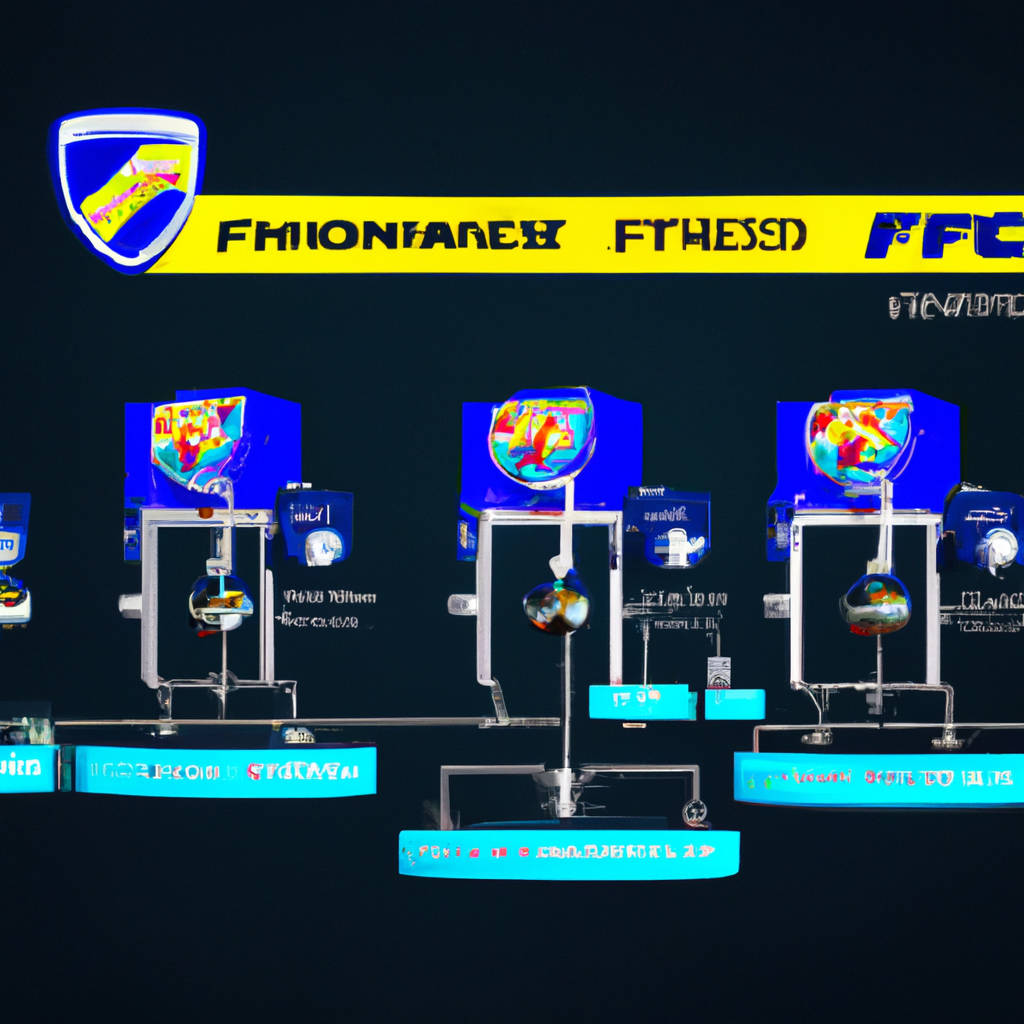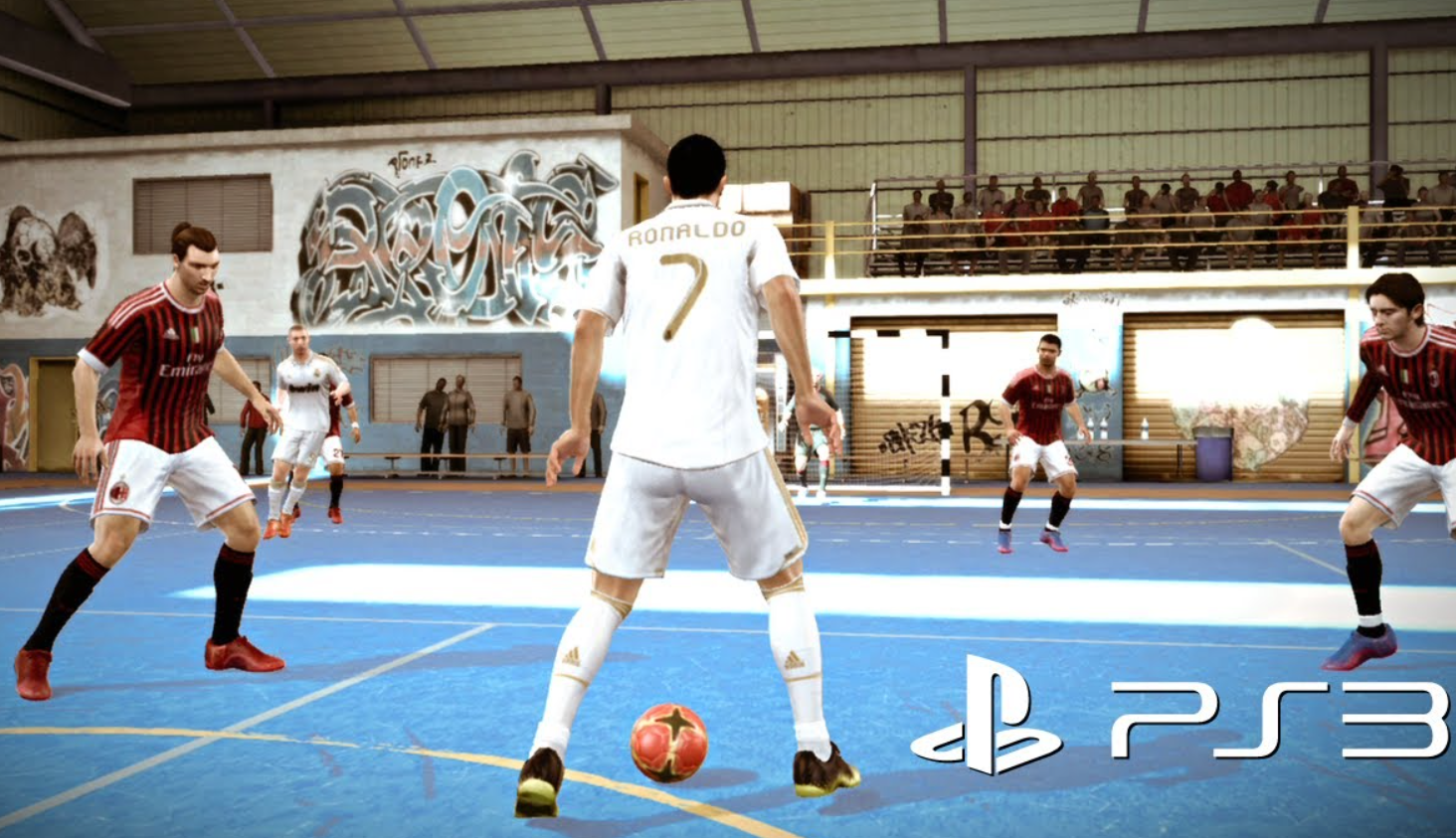The FIFA gaming franchise is a highly popular and acclaimed series that has captured the hearts of soccer enthusiasts worldwide. Developed by EA Sports, this franchise has become a household name, delivering an immersive and realistic gaming experience.
The franchise began in 1993 with the release of FIFA International Soccer. Since then, it has evolved and expanded with each new installment, incorporating advancements in graphics, gameplay, and features. FIFA games offer a wide range of game modes, including career mode, ultimate team, and online multiplayer, allowing players to indulge in their passion for soccer in various ways.
One of the standout features of the FIFA franchise is its attention to detail and authenticity. The game meticulously recreates famous soccer stadiums, accurately portrays player movements, and includes an extensive roster of teams and players from around the globe. This commitment to realism has made FIFA a go-to game for soccer fans who crave an immersive experience.
Moreover, FIFA has also embraced the competitive gaming scene with the introduction of eSports tournaments and the FIFA eWorld Cup. These events attract top players from around the world, showcasing their skills and creating a vibrant community of competitive gaming.
The FIFA franchise has not only revolutionized soccer video games but has also had a significant impact on the sports gaming industry as a whole. It has set the standard for authenticity, realism, and innovation, constantly pushing the boundaries of what can be achieved in a sports simulation game.
In conclusion, the FIFA franchise has earned its place as one of the most influential and beloved gaming franchises in history. Its commitment to authenticity, attention to detail, and continuous innovation has allowed it to capture the hearts of soccer fans worldwide and establish itself as a pillar of the gaming industry.

Gameplay Mechanics FIFA games
Gameplay Mechanics in FIFA Games
FIFA games, developed by EA Sports, have been a staple in the world of video games for soccer enthusiasts. With each new release, players eagerly anticipate the improvements and changes in gameplay mechanics that enhance their gaming experience. These mechanics are the building blocks of the game, determining how players interact with the virtual soccer world. In this text, we will explore some of the key gameplay mechanics that make FIFA games so engaging and addictive.
One essential gameplay mechanic in FIFA games is player control. Players have the ability to control every movement of their chosen player, from running and dribbling to passing and shooting. This level of control allows gamers to fully immerse themselves in the virtual soccer experience, making split-second decisions and executing precise maneuvers. The responsiveness and fluidity of player control are crucial in capturing the essence of real-life soccer and providing an enjoyable gaming experience.
Passing mechanics also play a vital role in FIFA games. The ability to accurately pass the ball to teammates is essential in creating scoring opportunities and maintaining possession. FIFA games implement various passing mechanics, such as short passes, long passes, through balls, and lobbed passes. Each type of pass requires different timing and precision, adding depth and strategy to the gameplay. Mastering these passing mechanics is integral to success in FIFA games, as it allows players to create intricate plays and exploit the opposition’s defense.
Shooting mechanics are another essential aspect of FIFA games. Scoring goals is the ultimate objective, and the shooting mechanics determine the accuracy and power of each shot taken. Players can choose between different shooting techniques, such as finesse shots, volleys, and headers, to adapt to different in-game situations. The shooting mechanics in FIFA games take into account factors like player positioning, timing, and the goalkeeper’s reactions, making each shot a unique challenge. Whether it’s a long-range screamer or a delicate chip over the keeper, mastering the shooting mechanics adds a sense of satisfaction and accomplishment to the gameplay.
Defensive mechanics are equally important in FIFA games. The ability to defend effectively can make the difference between victory and defeat. FIFA games incorporate a range of defensive mechanics, including tackling, jockeying, and intercepting passes. These mechanics require players to anticipate the opponent’s moves, react quickly, and maintain proper positioning. Effective defensive play in FIFA games involves a combination of skill, timing, and tactical awareness. A well-executed tackle or a perfectly timed interception can turn the tide of a match and create scoring opportunities for your team.
Another notable gameplay mechanic in FIFA games is the inclusion of skill moves. Skill moves allow players to perform flashy and creative maneuvers to dribble past opponents and create scoring chances. From step-overs and ball rolls to rainbow flicks and elastico, FIFA games offer a vast array of skill moves to showcase the player’s flair and technical ability. Mastering these skill moves adds an additional layer of excitement and spectacle to the gameplay, allowing players to perform jaw-dropping tricks and leave their opponents in awe.
In conclusion, FIFA games have established themselves as the ultimate soccer gaming experience, thanks to their immersive gameplay mechanics. Player control, passing, shooting, defensive play, and skill moves all contribute to the engaging and addictive nature of FIFA games. The attention to detail in these mechanics captures the essence of real-life soccer, offering players an opportunity to experience the thrill and excitement of the sport within a virtual world. Whether you are a seasoned FIFA player or a newcomer, these gameplay mechanics ensure an enjoyable and rewarding gaming experience.
Graphics and Presentation FIFA games
Graphics and Presentation in FIFA Games: A Visual Marvel
In the realm of video games, where virtual worlds come to life, graphics and presentation play a pivotal role in enhancing the overall gaming experience. One shining example of this is the FIFA game series, which has consistently pushed the boundaries of visual excellence. With each new installment, FIFA games have continued to captivate players with their stunning graphics and immersive presentation, making them a visual marvel in the gaming industry.
One of the most striking aspects of FIFA games is the level of detail in their graphics. From the meticulously rendered stadiums to the lifelike player models, every element is crafted with utmost care. Each blade of grass on the pitch, every bead of sweat on the players’ foreheads, and even the crowd reactions are intricately designed to create a sense of realism rarely seen in other sports games. The attention to detail is so profound that players can almost feel the vibrations of the stadium as they score a goal or hear the roar of the crowd during a crucial match.
Moreover, FIFA games boast an impressive range of presentation features that further enhance the immersive experience. The inclusion of real-life commentators, such as Martin Tyler and Alan Smith, provides a sense of authenticity that draws players into the game’s atmosphere. Their in-depth analysis, emotional reactions, and dynamic commentary seamlessly integrate with the gameplay, making players feel like they are part of a real football broadcast. This attention to presentation not only adds to the overall enjoyment of the game but also contributes to the sense of being part of a larger football community.
Furthermore, FIFA games utilize advanced lighting techniques and visual effects to create breathtaking moments on the virtual pitch. From the vibrant colors of the jerseys to the dynamic lighting that changes with the time of day, every aspect of the game’s visuals is carefully considered. The goal celebrations, slow-motion replays, and dramatic camera angles add a cinematic touch, making players feel as if they are participating in a real-life football match. It is through these graphical elements that FIFA games are able to evoke a range of emotions, whether it be the elation of scoring a last-minute winner or the disappointment of narrowly missing a penalty kick.
Another notable aspect of FIFA games’ graphics and presentation is the inclusion of licensed teams and players. With partnerships with major football leagues worldwide, FIFA games offer an extensive roster of real-life teams and players. This authenticity extends beyond the visual representation, as the players’ unique playing styles and abilities are faithfully replicated in the game. Being able to control football icons like Lionel Messi or Cristiano Ronaldo adds an extra layer of excitement and immersion to the gameplay experience.
Furthermore, the graphics and presentation in FIFA games have evolved significantly over the years, thanks to advancements in technology. From the early days of pixelated players to the current era of realistic graphics, the FIFA series has continually pushed the boundaries of what is visually possible. With each new installment, players are treated to improved textures, smoother animations, and more lifelike facial expressions. This continuous evolution ensures that FIFA games stay at the forefront of visual excellence, leaving players eagerly anticipating the next graphical leap in each new release.
In conclusion, the graphics and presentation in FIFA games are nothing short of remarkable. The attention to detail, immersive presentation, and emphasis on authenticity create a visually stunning and engaging gaming experience. From the lifelike player models to the vibrant stadiums, FIFA games continue to set the standard for visual excellence in the gaming industry. Through the combination of advanced graphics technology, licensed teams and players, and a commitment to pushing the boundaries of visual realism, FIFA games have established themselves as a visual marvel that keeps players coming back for more.

Game Modes and Features FIFA
Game Modes and Features in FIFA
FIFA, the widely popular football video game franchise developed by EA Sports, has captivated gamers and football enthusiasts for decades. With its realistic gameplay, stunning graphics, and immersive experience, FIFA offers a wide range of game modes and features that ensure hours of endless fun. Let’s delve into some of these exciting game modes and features that make FIFA a must-play for football fans.
One of the most popular game modes in FIFA is “Career Mode.” In this mode, players can take on the role of a football manager and guide their favorite teams to success. From managing transfers and contracts to developing young talents and setting up training sessions, Career Mode allows players to experience the thrill of being in charge of a professional football club. Moreover, the mode also offers a scouting network that enables managers to discover hidden gems from around the world, helping them build a formidable team.
For those seeking a more competitive experience, FIFA provides the “Ultimate Team” mode. This mode allows players to build their dream squad by collecting player cards and assembling a team with their favorite football stars. With an extensive database of players from various leagues and countries, Ultimate Team offers endless possibilities and customization options. Players can participate in online tournaments, compete against friends, or test their skills in the challenging Squad Battles mode, where they face off against AI-controlled teams.
FIFA also caters to those who prefer a quick and casual gaming session with their friends. The “Kick-Off” mode provides a perfect platform for friendly matches, allowing players to select their favorite teams and compete against each other. With customizable match settings, players can adjust the difficulty level, match duration, and even introduce unique gameplay modifiers for added fun. This mode ensures that every gathering with friends becomes a memorable football showdown.
In addition to the various game modes, FIFA incorporates several features that enhance the overall gaming experience. The “Pro Clubs” feature allows players to create their virtual pro and join an online club, competing against other clubs in league matches and tournaments. This feature promotes teamwork and communication, as players need to coordinate their strategies to achieve success on the virtual pitch.
FIFA’s dedication to authenticity is evident through its inclusion of real-life stadiums, licensed teams, and player likenesses. The meticulously designed stadiums accurately reflect their real-world counterparts, creating a sense of immersion and realism. Moreover, the inclusion of over 17,000 players from more than 700 teams ensures that players can enjoy the game with their favorite football idols.
Furthermore, FIFA’s continuous updates and additions keep the game fresh and exciting. The franchise regularly releases new player cards, reflecting real-life performances and transfers. Additionally, the introduction of limited-time events, such as the “Team of the Week” and “FUT Champions Weekend League,” adds an element of unpredictability and rewards dedicated players with unique player items.
FIFA’s game modes and features cater to a wide range of players, ensuring that there is something for everyone. Whether you prefer the strategic aspects of managing a team, the thrill of building your dream squad, or simply enjoying a casual match with friends, FIFA offers a comprehensive football gaming experience. With its engaging gameplay, stunning visuals, and attention to detail, FIFA continues to set the standard for football video games and captivate players worldwide.
Licensing and Authenticity FIFA games
Licensing and Authenticity in FIFA Games: Ensuring a Genuine Experience
In the world of gaming, few franchises have been able to capture the hearts of millions of fans like the FIFA series. Developed by EA Sports, these games have become synonymous with the sport of football, offering players an immersive experience that allows them to step into the shoes of their favorite players and teams. One of the key factors that contribute to the success of FIFA games is the licensing and authenticity they offer, creating a genuine and realistic representation of the beautiful game.
Licensing plays a crucial role in ensuring that FIFA games provide an authentic experience for players. Through licensing agreements, EA Sports is able to secure the rights to use the names, logos, and jerseys of real-life football clubs. This means that when players boot up the game, they are greeted with the familiar emblems of their favorite teams, adding a layer of realism to the overall experience. Licensing also allows for accurate player representations, ensuring that virtual versions of football stars mirror their real-life counterparts in terms of appearance, attributes, and playing style.
By acquiring licensing rights, FIFA games can recreate iconic stadiums, such as Camp Nou or Old Trafford, allowing fans to play in venues they may only dream of setting foot in. The attention to detail extends beyond just the visuals, as EA Sports also invests in capturing the unique atmosphere and crowd reactions of these stadiums. This commitment to authenticity creates a sense of immersion that is unparalleled in the gaming world, making FIFA games a go-to choice for football enthusiasts.
Authenticity goes beyond the surface level, as FIFA games strive to replicate the intricate gameplay mechanics of football. Through extensive research and development, EA Sports has fine-tuned the physics engine to mimic the movements and interactions of players on the pitch. From the way the ball bounces and spins to the fluidity of player animations, every aspect of the game is designed to mirror the real sport as closely as possible. This dedication to authenticity ensures that players can experience the strategies, tactics, and intensity that make football so captivating.
Moreover, FIFA games provide players with a vast array of leagues and competitions to participate in. From the English Premier League to the German Bundesliga, players can choose from a multitude of options to build their dream teams and compete against friends or online opponents. This wide range of options adds depth and variety to the gameplay experience, allowing players to explore different football cultures and styles of play from around the globe.
The licensing and authenticity in FIFA games not only benefit players but also have a positive impact on the football industry as a whole. By accurately representing teams and players, these games contribute to the promotion and exposure of the sport. They help cultivate a new generation of fans, spreading the love for football to corners of the world where access to professional matches may be limited. The virtual representation of real-life football also serves to strengthen the bond between the gaming community and the sport itself, fostering a mutual appreciation and understanding.
In conclusion, licensing and authenticity are key components of FIFA games, ensuring a genuine experience that captivates millions of players worldwide. Through licensing agreements, EA Sports is able to recreate the real-world footballing experience by incorporating authentic team names, logos, and player likenesses. The attention to detail, from accurate stadium recreations to realistic gameplay mechanics, sets the FIFA series apart as the go-to choice for football gaming enthusiasts. By providing an immersive and genuine experience, these games not only entertain but also contribute to the overall growth and promotion of the sport.

Innovation and Evolution FIFA games
Innovation and Evolution in FIFA Games
Over the years, FIFA games have undergone remarkable innovation and evolution, captivating the hearts of millions of gamers worldwide. These games have not only become a source of entertainment but also a platform for enthusiasts to experience the thrill of football on their screens. The gaming industry has witnessed groundbreaking advancements, allowing FIFA games to evolve into a realistic and immersive experience that mirrors the beautiful game itself.
One of the most significant innovations in FIFA games is the introduction of realistic graphics and lifelike player animations. Gone are the days when players appeared as pixelated figures on the screen. Today, FIFA games boast stunning visuals that capture the essence of the sport. Every movement, every pass, and every goal is meticulously crafted to provide gamers with a truly immersive experience. The evolution of graphics technology has played a crucial role in making FIFA games visually appealing and engaging.
Moreover, the gameplay mechanics in FIFA games have seen significant improvements over time. Developers have worked tirelessly to create a gameplay experience that closely resembles real-life football. From the fluidity of player movements to the intricacy of passing and shooting, FIFA games have strived to capture the essence of the sport. The introduction of advanced physics engines has allowed players to experience the weight and momentum of the ball, adding a layer of realism and strategy to the gameplay.
Innovation can also be seen in the inclusion of new game modes and features that enhance the overall FIFA experience. One such example is the addition of the “Journey” mode, which allows players to follow the career of a young footballer as they navigate the ups and downs of professional football. This immersive storyline adds a new dimension to the game, giving players a taste of what it’s like to be a rising star in the football world.
Furthermore, FIFA games have embraced the power of online connectivity, enabling players to compete with friends and gamers from around the globe. Online multiplayer modes have revolutionized the way FIFA games are played, allowing players to test their skills against real opponents. The evolution of online gaming has created a vibrant community of FIFA enthusiasts who can share their experiences, participate in tournaments, and even form virtual football teams.
Another aspect of innovation in FIFA games is the integration of real-world football events. With each passing year, developers strive to incorporate the latest team rosters, player transfers, and even the official kits of various clubs. This attention to detail ensures that players have access to the most up-to-date football experience, allowing them to play as their favorite teams and compete in virtual versions of real-life tournaments.
FIFA games have also embraced technological advancements beyond traditional gaming platforms. The rise of mobile gaming has led to the development of FIFA Mobile, a version of the game specifically designed for smartphones and tablets. This mobile adaptation allows football enthusiasts to enjoy the FIFA experience on the go, ensuring that the game is accessible to a wider audience.
In conclusion, the innovation and evolution of FIFA games have revolutionized the gaming industry and captivated the hearts of football fans worldwide. From lifelike graphics and realistic gameplay mechanics to the inclusion of new game modes and online connectivity, FIFA games have continuously pushed the boundaries of what is possible in a virtual football experience. With each new installment, developers strive to provide players with an immersive and authentic representation of the beautiful game. As technology continues to advance, one can only imagine the exciting innovations that await future FIFA games.
Community Reception and Feedback FIFA games
Community Reception and Feedback on FIFA Games
The FIFA game series has undoubtedly become a household name among gaming enthusiasts across the globe. With its realistic graphics, engaging gameplay, and immersive experience, it has successfully captured the hearts of millions. However, like any popular franchise, it has also faced its fair share of both praise and criticism from the gaming community.
One of the most notable aspects of FIFA games is the level of authenticity they strive to achieve. From the meticulously designed stadiums to the accurate portrayal of players’ movements, the developers have gone to great lengths to provide an immersive football experience. This attention to detail has garnered widespread appreciation from fans who feel like they are part of the action on the virtual pitch.
Another aspect that has been widely praised is the gameplay mechanics. FIFA games offer a range of options, from quick matches to career modes, allowing players to tailor their experience to their liking. The smooth controls and responsive gameplay make it enjoyable for both casual players and hardcore fans of the sport. This adaptability has played a significant role in the game’s success and popularity among a diverse gaming community.
However, no game is without its flaws, and FIFA is no exception. One of the most common criticisms is the presence of bugs and glitches. Some players have reported instances of players behaving erratically or game crashes during crucial moments. While these issues are not unique to FIFA games, they can certainly be frustrating for players who invest their time and effort into the game. The community has been vocal about their concerns, urging the developers to address these technical issues promptly.
Another area of contention is the game’s monetization model. FIFA games have been criticized for their reliance on microtransactions, where players can purchase in-game items or currency using real money. Some argue that this creates an unfair advantage for those willing to spend more, potentially diminishing the skill-based aspect of the game. The community has expressed a desire for a more balanced and fair approach to in-game purchases, suggesting alternative methods to reward dedicated players without resorting to pay-to-win mechanics.
Additionally, the lack of significant changes between each annual release has drawn criticism from some players. Some argue that the game feels repetitive, with only minor updates and roster changes. This has led to calls for more innovation, with players seeking fresh features and improvements that would justify purchasing a new installment each year. The community’s feedback in this regard highlights their desire for continuous evolution and innovation within the FIFA franchise.
Despite these criticisms, it is essential to acknowledge the positive impact FIFA games have had on the gaming community. The games have successfully brought football fans from around the world together, fostering a sense of community and competition. The multiplayer modes allow players to connect and challenge each other, creating a vibrant online community. The game’s popularity has also given rise to competitive esports tournaments, further solidifying its position in the gaming landscape.
In conclusion, the FIFA game series has earned both praise and criticism from the gaming community. The attention to detail, realistic gameplay, and immersive experience have garnered widespread appreciation. However, technical issues, monetization concerns, and a desire for more innovation have also been voiced by players. Nevertheless, the FIFA franchise continues to be a prominent and influential force in the gaming world, bringing football fans together and providing a platform for virtual sportsmanship.

Legacy and Impact FIFA games
Title: The Enduring Legacy and Far-reaching Impact of FIFA Games
Introduction:
The FIFA game franchise has undoubtedly left an indelible mark on the world of gaming and football enthusiasts alike. For over three decades, these video games have revolutionized the way we experience football, transcending the boundaries of entertainment to become a cultural phenomenon. From its humble beginnings to its current global dominance, FIFA games have shaped the gaming industry and contributed significantly to the popularity and growth of football worldwide.
Revolutionizing Football Gaming:
The introduction of the FIFA series in 1993 by EA Sports marked a pivotal moment in the history of football gaming. With each subsequent release, the game became increasingly immersive, capturing the essence of the sport and providing an unparalleled virtual experience. The game’s attention to detail, realistic gameplay mechanics, and licensing agreements with major football leagues and clubs solidified FIFA’s position as the go-to football game for fans around the world.
Cultural Impact:
Beyond its gaming prowess, FIFA games have had a profound cultural impact. These games have helped bridge the gap between virtual and real-world football, fostering a sense of community among fans. FIFA tournaments, both online and offline, have become a global phenomenon, attracting millions of players and spectators. This has given rise to a new breed of professional gamers, showcasing their skills on the international stage and gaining recognition as esports athletes.
Growth of Virtual Football:
FIFA games have played a crucial role in the growth of virtual football, popularizing the concept of online multiplayer gaming. The ability to compete against friends or strangers worldwide has created a sense of camaraderie among gamers, transcending geographical barriers. Moreover, the introduction of FIFA Ultimate Team (FUT) mode, where players can build their own dream teams, trade players, and compete in online tournaments, has revolutionized the gaming landscape by blending the excitement of football with the thrill of collecting and trading virtual player cards.
Educational Value:
FIFA games extend beyond mere entertainment, offering educational value to players. By providing access to real-world football tactics and strategies, FIFA games enable players to understand the intricacies of the sport. Moreover, the game’s extensive database of players, teams, and historical statistics serves as a virtual encyclopedia for football enthusiasts, fostering a deeper appreciation for the sport’s rich heritage.
Positive Impact on Football:
The impact of FIFA games is not limited to the gaming industry alone; they have also made significant contributions to the world of football. These games have played a crucial role in spreading awareness about the sport, attracting new fans, and increasing viewership for real-world matches. The virtual representation of football stars in FIFA games has further boosted the popularity and marketability of players, enhancing their global recognition and contributing to the commercial success of the sport.
Conclusion:
The FIFA game franchise has left an indelible legacy and a far-reaching impact on both the gaming industry and the world of football. From revolutionizing football gaming to fostering a global community, FIFA games have transcended the realm of entertainment to become an integral part of modern culture. With each iteration, FIFA games continue to captivate and engage players, ensuring that their impact on both gaming and football remains unparalleled.
Final ranking of FIFA games based on the aforementioned criteria
The FIFA games have long been a favorite among gamers around the world. With each new release, fans eagerly anticipate the improved graphics, realistic gameplay, and updated rosters. But how do the games fare when evaluated based on certain criteria? Let’s delve into the final ranking of FIFA games, taking into account various aspects that make these games so popular.
First and foremost, gameplay mechanics play a vital role in determining the success of a FIFA game. The fluidity of player movement, responsiveness of controls, and overall game physics are crucial factors. In this regard, FIFA 20 takes the top spot. The game introduced the new ‘Volta’ mode, which allows players to indulge in street football. This addition, coupled with refined gameplay mechanics, created a truly immersive experience. FIFA 16 follows closely behind, with its improved passing system and enhanced player animations. These two games truly set the bar high for the FIFA series.
Moving on to graphics, FIFA 21 reigns supreme. The game boasts stunning visuals, with lifelike player models and meticulously detailed stadiums. The lighting effects and realistic pitch textures further enhance the visual experience. FIFA 19 also deserves recognition for its graphical prowess, as it showcased significant improvements in player likeness and stadium atmosphere. The attention to detail in these games is truly commendable, making the virtual football experience all the more captivating.
Next, we come to the all-important game modes. FIFA games have always provided a plethora of options for players to indulge in, ranging from career mode to online multiplayer. When it comes to game modes, FIFA 18 surpasses the competition. The introduction of ‘The Journey,’ a story-driven mode, breathed new life into the franchise. Players could embark on the journey of a rising star, experiencing the ups and downs of a footballer’s career. FIFA 17 also deserves recognition for its engaging career mode, which allowed players to control various aspects of a team, from transfers to tactical decisions. These game modes added depth and longevity to the FIFA experience, earning these games high praise from fans.
The authenticity of the FIFA games cannot be overlooked. The inclusion of real teams, licensed leagues, and accurate player ratings enhances the overall immersion.











